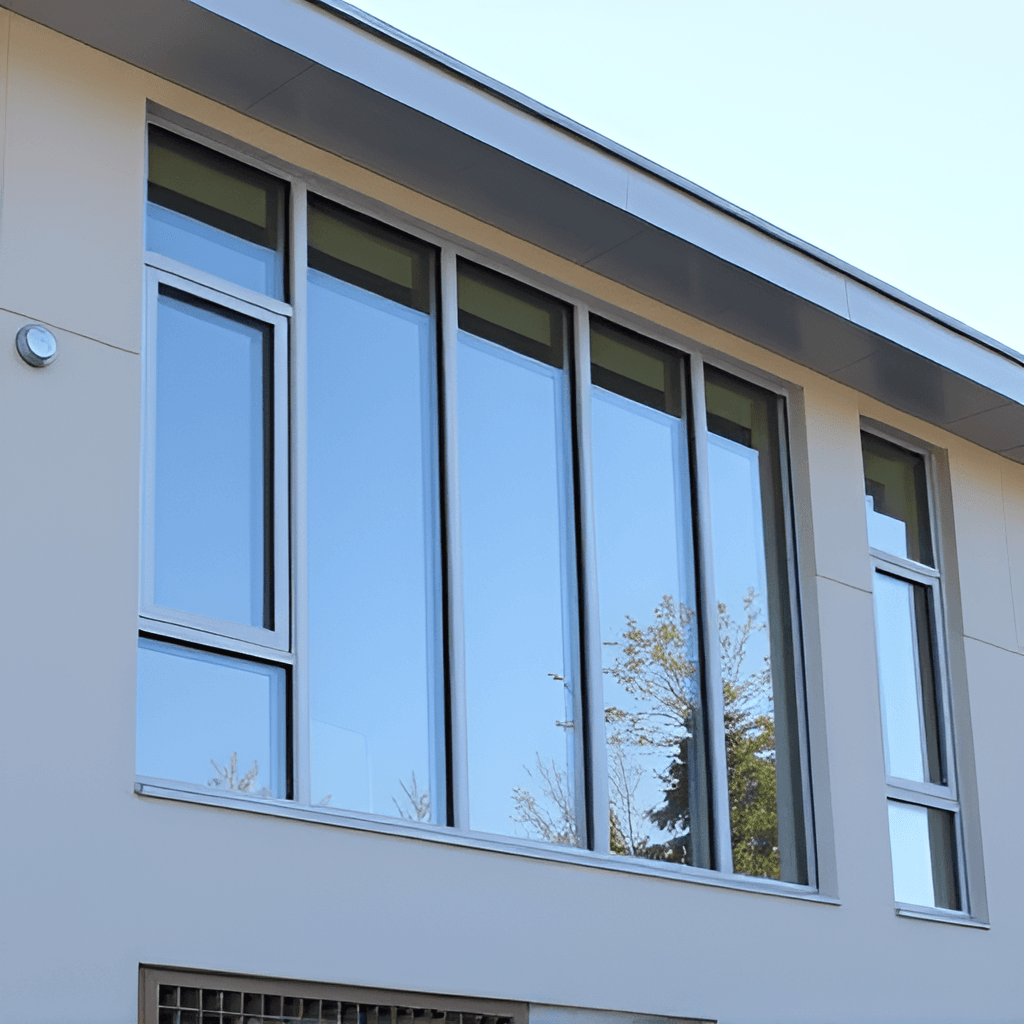Explore the advantages and drawbacks of metal windows in your home. From durability and low maintenance to aesthetic appeal and energy efficiency, learn why metal windows, such as aluminum and steel frames, are becoming a popular choice among homeowners. Additionally, understand the potential challenges, such as heat transfer and condensation, that could impact your decision. This comprehensive guide will help you assess whether metal windows are the right fit for your home based on your climate, budget, and design preferences.
Understanding Metal Windows
Metal windows are a type of window construction that primarily utilizes materials such as aluminum or steel for their frames. Unlike traditional windows that frequently employ wood or vinyl, metal windows offer distinct advantages in terms of durability and strength. The construction of these windows typically involves a precise manufacturing process, ensuring they can withstand harsh weather conditions without warping or deteriorating over time.

There are various styles of metal windows available, including casement, sliding, and fixed frames, each offering unique aesthetic qualities and functional benefits. Aluminum windows are particularly popular due to their lightweight nature, resistance to corrosion, and low maintenance requirements. Steel windows, although heavier, provide exceptional strength and are often favored in more industrial or modern architectural designs. The versatility of these materials allows for an array of finishes and color options, making metal windows suitable for both contemporary and classic home designs.
Please, read our post and do not forget to check our YouTube channel “Grig Stamate”:
https://www.youtube.com/@GrigStamate
You will find there, thousands of designing, furnishing, and decorating ideas for your home interior and outdoors.
Allow me to mention one of them:
Small but Mighty: Dream Houses under 1,500 sq ft (140 sq m) #4 (video)
Small but Mighty: Dream Houses under 1,500 sq ft (140 sq m) #6 (video)
Small but Mighty: Dream Houses under 1,500 sq ft (140 sq m) #2 (video)
The history of metal windows dates back to the early 20th century when they began to gain prominence in commercial architecture. Their use was initially limited to industrial buildings, but as design trends evolved, metal windows began to find their place in residential homes as well. The aesthetic appeal of metal windows lies in their slim profiles and ability to accommodate large panes of glass, which invite natural light and open up interior spaces. This feature is especially valued in modern design, where maximizing sunlight can enhance the overall ambiance of a home.
Compared to their wooden and vinyl counterparts, metal windows are often seen as a more modern and streamlined option. They provide a sleek appearance while also delivering the resilience that many homeowners seek. Understanding the characteristics and advantages of metal windows sets the foundation for exploring whether they are the right choice for your home.
The Advantages of Metal Windows
Metal windows have gained popularity among homeowners for several compelling reasons. One of the most significant benefits is their durability. Metal, typically steel or aluminum, is naturally resistant to warping, cracking, and other forms of wear that often affect traditional wood windows. This longevity is further enhanced by protective coatings that shield the metal from rust and corrosion, particularly in harsh weather conditions. The ability of metal windows to withstand environmental factors translates to fewer replacements over time, making them a worthwhile investment.
Another notable advantage of metal windows is their low maintenance requirements. Unlike wood frames that necessitate regular painting or staining to prevent deterioration, metal windows generally require minimal upkeep. Routine cleaning with mild detergent and water is often sufficient to keep them looking pristine. This ease of maintenance appeals to homeowners seeking convenience without compromising aesthetic appeal.
Energy efficiency is also a crucial benefit associated with metal windows. Modern metal windows incorporate advanced insulation technologies, such as thermal breaks, that significantly reduce heat conductance. Consequently, homeowners can expect decreased energy bills and improved comfort levels in their homes throughout changing seasons. This energy-efficient characteristic not only diminishes a household’s carbon footprint but also enhances its overall value.
Moreover, metal windows contribute to heightened security. Their robust frames and locking mechanisms deter potential intruders, providing homeowners with peace of mind. For those who reside in neighborhoods with higher crime rates, this increased security is an essential feature.
Finally, many homeowners appreciate the modern aesthetic appeal of metal windows. Their sleek, contemporary look complements various architectural styles, adding an element of elegance to homes. Personal anecdotes reveal that many homeowners have experienced a boost in curb appeal after installing metal windows. Altogether, these advantages position metal windows as an attractive option for homeowners contemplating a window upgrade.
The Downsides: Drawbacks of Metal Windows
While metal windows offer several advantages, it is crucial to consider their potential drawbacks before making a decision. One significant factor to take into account is the initial cost. Generally, metal windows tend to have a higher upfront expense compared to traditional materials such as wood or vinyl. This cost differential can represent a notable investment, particularly for homeowners on a tight budget. Though metal windows can be durable and long-lasting, the initial pricing may not align with everyone’s financial situation.
Another important consideration is the susceptibility of metal windows to heat transfer. Metal is a good conductor of heat, which can lead to increased energy expenses in certain climates. In regions characterized by extreme temperatures—be it hot summers or chilly winters—this can result in less energy-efficient homes. Homeowners may need to invest in additional insulation or high-performance glazing systems to mitigate heat transfer, further adding to the overall cost of installation.
Condensation is yet another potential issue that can arise with metal windows. Metal surfaces can lead to moisture accumulation, especially in humid climates, which can contribute to mold growth and damage over time. While proper installation and treatment can reduce this risk, it remains a concern for many homeowners. Consulting with industry experts who have firsthand experience dealing with these challenges can provide valuable insight into the long-term implications of choosing metal windows.
In conclusion, while metal windows present several appealing benefits, they also come with various drawbacks that warrant careful consideration. A thorough evaluation of the costs, energy efficiency, and potential moisture issues is essential for homeowners to make informed choices about their window options.
Making the Decision: Are Metal Windows Right for You?
Choosing the right windows for your home involves a comprehensive evaluation of several factors that can significantly impact your living space. When considering metal windows, it is vital to assess your unique climate conditions. Metal frames, particularly those crafted from aluminum or steel, can be resilient against harsh weather, proving advantageous in areas with extreme temperatures. However, in regions prone to heavy rainfall or humidity, some homeowners may need to factor in potential condensation issues, which could affect both the performance and aesthetics of metal windows.
Your aesthetic preferences will also play a crucial role in this decision. Metal windows can offer a modern appearance that may complement contemporary architecture exceptionally well. However, if your home exudes a more traditional or rustic style, such metal frames might clash with your visual preferences. Different finishes and designs are available, so it is worth exploring various options to find a suitable fit for your home’s character.
Next, budget considerations are integral to making an informed choice. While metal windows can be a long-term investment due to their durability and low maintenance costs, they usually have a higher upfront price compared to wood or vinyl alternatives. Homeowners should evaluate their budget not only for the purchase but also for potential installation costs. It’s advisable to obtain quotes from multiple suppliers to ensure transparency in pricing.
Before finalizing your decision, consulting with a specialist can provide personalized advice tailored to your home’s specific needs. Professionals can assist in identifying the best materials suitable for your climate, style, and budget. Every home is different, so creating an engaging dialogue in the comments about experiences with metal windows could contribute to building a community of shared knowledge. Welcome the insights and questions from fellow readers as you embark on this important decision-making process.
Other related posts from our website:
https://howtobuildahouseblog.com/condensation-on-windows-heres-how-to-get-rid-of-it/
Thank you so much for your attention.
Stay tuned. We will upload many other amazing posts to our website and videos onto our YouTube channel.
Thank you so much.
for your time and attention.
Best Regards
See you at another post,
Bye, Bye



No Responses